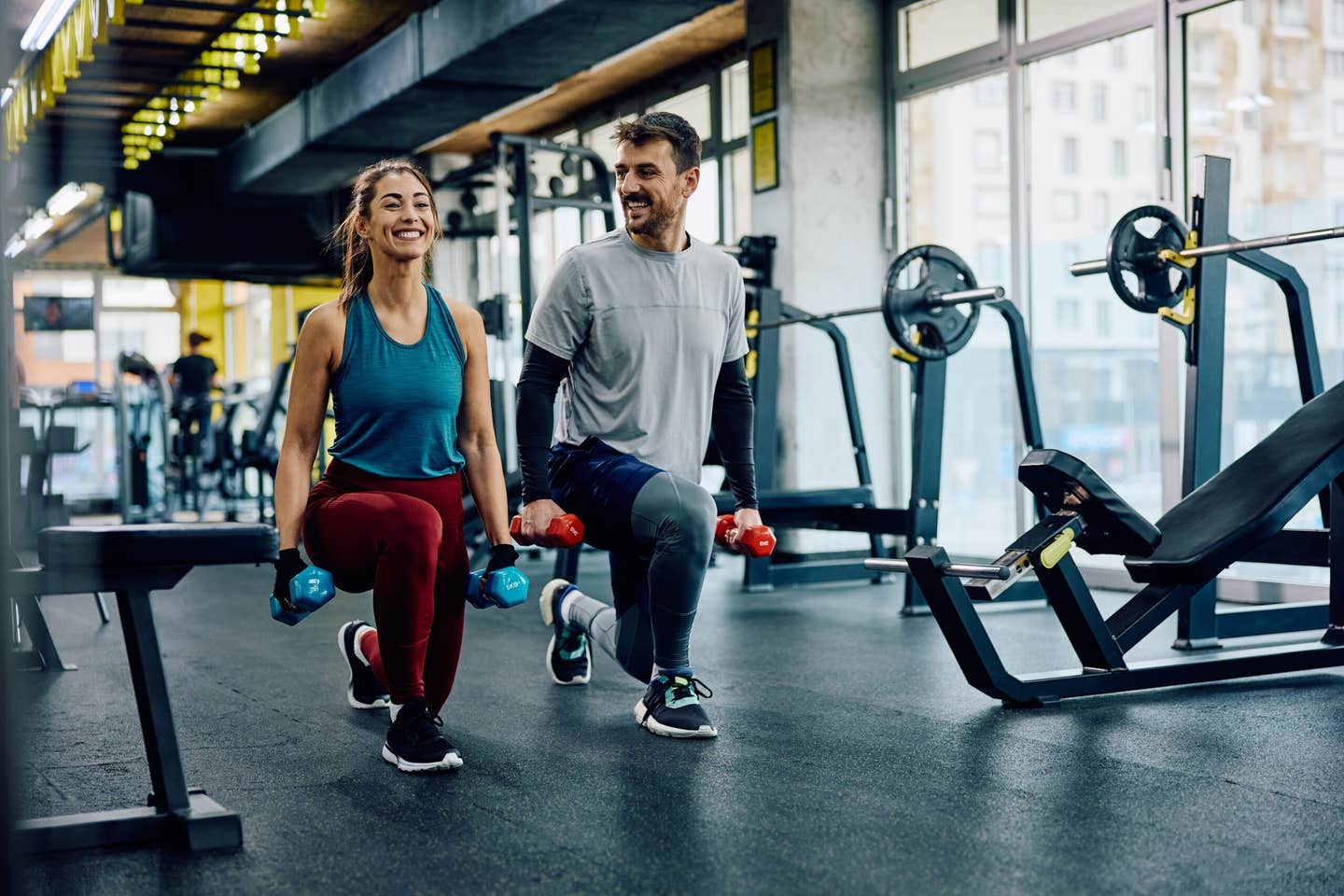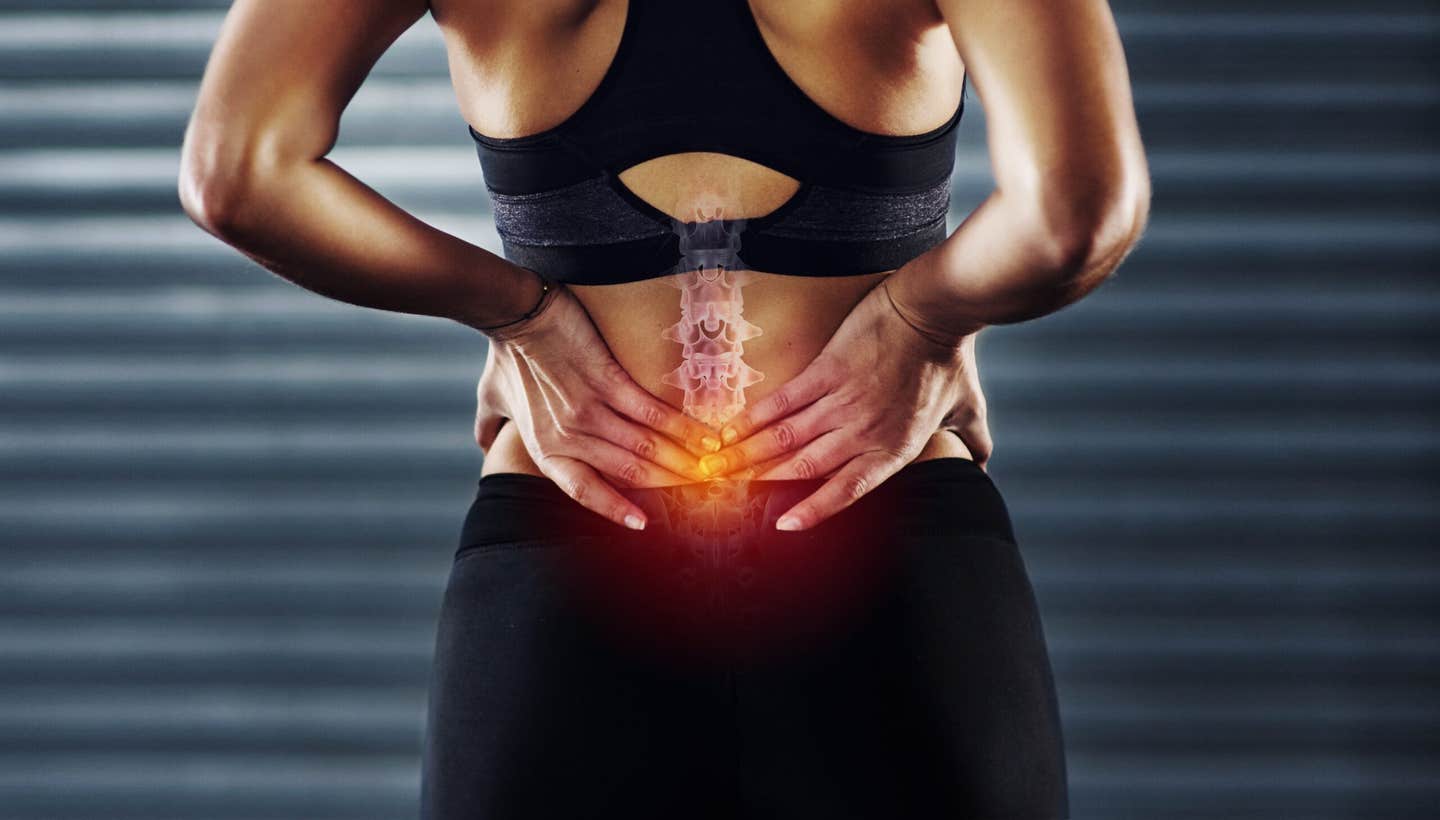Mini workouts, major gains: How short exercise bursts can transform your fitness
Brief high-intensity workouts under five minutes can boost heart and muscle health, according to new research.

Short, high-intensity “exercise snacks” lasting under five minutes can significantly improve heart and muscle fitness. (CREDIT: Shutterstock)
A few minutes of movement can make a real difference to your health. That's the finding from a new systematic review and meta-analysis which found that brief periods of high-intensity "exercise snacks" lasting five minutes or less can significantly boost cardiovascular and muscle fitness — even in people who say they have no time to exercise.
Small Steps, Big Impact
One in every three adults globally is below the World Health Organization's guidelines for physical activity levels, which is associated with greater risk of heart disease, obesity, and depression. The WHO encourages people to remember that "every move counts," and this study gives extra meaning to that phrase.
Researchers looked at 11 randomized controlled trials of 414 mostly inactive adults from Australia, Canada, China, and the UK. The volunteers undertook several short bouts of exercise during the day, which cumulatively lasted only 10–15 minutes. Though brief, the mini sessions improved cardiorespiratory fitness and muscle endurance, especially among older adults.
Exercise snacks may improve adherence to regular exercise by providing short, flexible intervals that are easier to fit into daily routines," said the authors.
How the Research Was Done
The researchers sorted through hundreds of papers before narrowing them to 11 that met strict scientific standards. The studies recruited adults or older adults to do short rounds of moderate-to-high intensity exercise — usually stair climbing, brisk walking, or weight-bearing activities — at least two times a day, several days a week, for up to three months.
The workouts were designed to be brief but intense, with no warm-up and cool-down phases. They were done at home, the workplace, or in the lab. Half of them were under supervision, and half did theirs independently — a setup that closely resembles how most would do them in real life.
Compliance and adherence rates were impressively high. On average, participants completed 91% of their intended workouts and followed through on 83% of their entire program, a level of consistency rarely seen in traditional gym-based studies.
The Science Behind the Sweat
Findings showed exercise snacks significantly improved cardiovascular function. Exercisers increased oxygen consumption and endurance — key markers of fitness and health in the long term. A big effect size for improvements in cardiorespiratory fitness over control groups was revealed by researchers, an indication that brief bouts of exertion can yield significant physiological gains.
Even though change in blood pressure, body fat, and cholesterol were less consistent, as a whole there was an upward trend. Muscular endurance was best improved in the elderly, with brief periods of daily leg exercises and tai chi lowering fatigue and improving strength performance.
Lead researcher Dr. Miguel Ángel Rodríguez of the University of Oviedo explained that the technique "has potential for people who find it hard to give up a lot of time exercising but would like to improve overall health."
Why It Works
The concept is based on recent research showing that short, regular bouts of exercise are just as good as conventional long-duration exercise. As you climb a few minutes' worth of stairs, your heart pounds harder, blood moves faster, and muscles contract with great force — forceful enough to cause improvements in endurance and muscle strength.
These little bursts can be easily integrated into your daily routine: walking up a floor or two to the office instead of taking the elevator, cycling quickly to the shop, or quickly walking upstairs a few flights. That convenience shatters psychological barriers like time constraints and lack of motivation — two of the biggest hurdles for adults to forego exercise.
Although promising, the authors noted some limitations. The research included fairly small groups of samples, and most compared sedentary adults, not athletes or children. There was not enough sex-specific data to know if men and women benefit from the technique equally.
However, the researchers note that those gaps point to areas for future research, particularly long-term health impact, safety, and access to diverse populations.
Making Movement Accessible
Because exercise snacks require no equipment, gym memberships, or gyms, they might be a great tool to promote international fitness. People who reside in impoverished areas or lack mobility can use this method to build strength and endurance in small, but quantifiable measures.
Public health professionals believe that this method could redefine exercise advice in favor of flexibility over stiffness. Instead of prescribing a stiff 30 minutes of exercise each day, doctors could recommend a series of short, moving periods of exercise throughout the day.
"The time-efficient aspect of exercise snacks can overcome barriers to physical activity that are common, including perceived lack of time and low motivation," the authors concluded.
Practical Implications of the Research
For working professionals, parents, or seniors, this study offers a simple solution: you don't have to spend an hour at the gym to become healthier. A few minutes of strenuous motion — walking up stairs, doing squats, or fast walking — can build fitness and stamina over time.
Globally accepted, exercise snacking may save healthcare costs and reduce the global disease burden associated with physical inactivity.
By reframing fitness as being attainable in small moments, you bring health journeys within reach and within sustainment for everyone.
Research findings are available online in the British Journal of Sports Medicine.
Related Stories
- Exercise may restore immune system in people with long COVID
- Small doses of exercise can reduce the risk of dementia by up to 40%, study finds
- Exercise can help your mental health — but not how you might think
Like these kind of feel good stories? Get The Brighter Side of News' newsletter.
Joshua Shavit
Science & Technology Writer and Editor
Joshua Shavit is a Los Angeles-based science and technology writer with a passion for exploring the breakthroughs shaping the future. As a co-founder of The Brighter Side of News, he focuses on positive and transformative advancements in AI, technology, physics, engineering, robotics and space science. Joshua is currently working towards a Bachelor of Science in Business and Industrial Engineering at the University of California, Berkeley. He combines his academic background with a talent for storytelling, making complex scientific discoveries engaging and accessible. His work highlights the innovators behind the ideas, bringing readers closer to the people driving progress.



